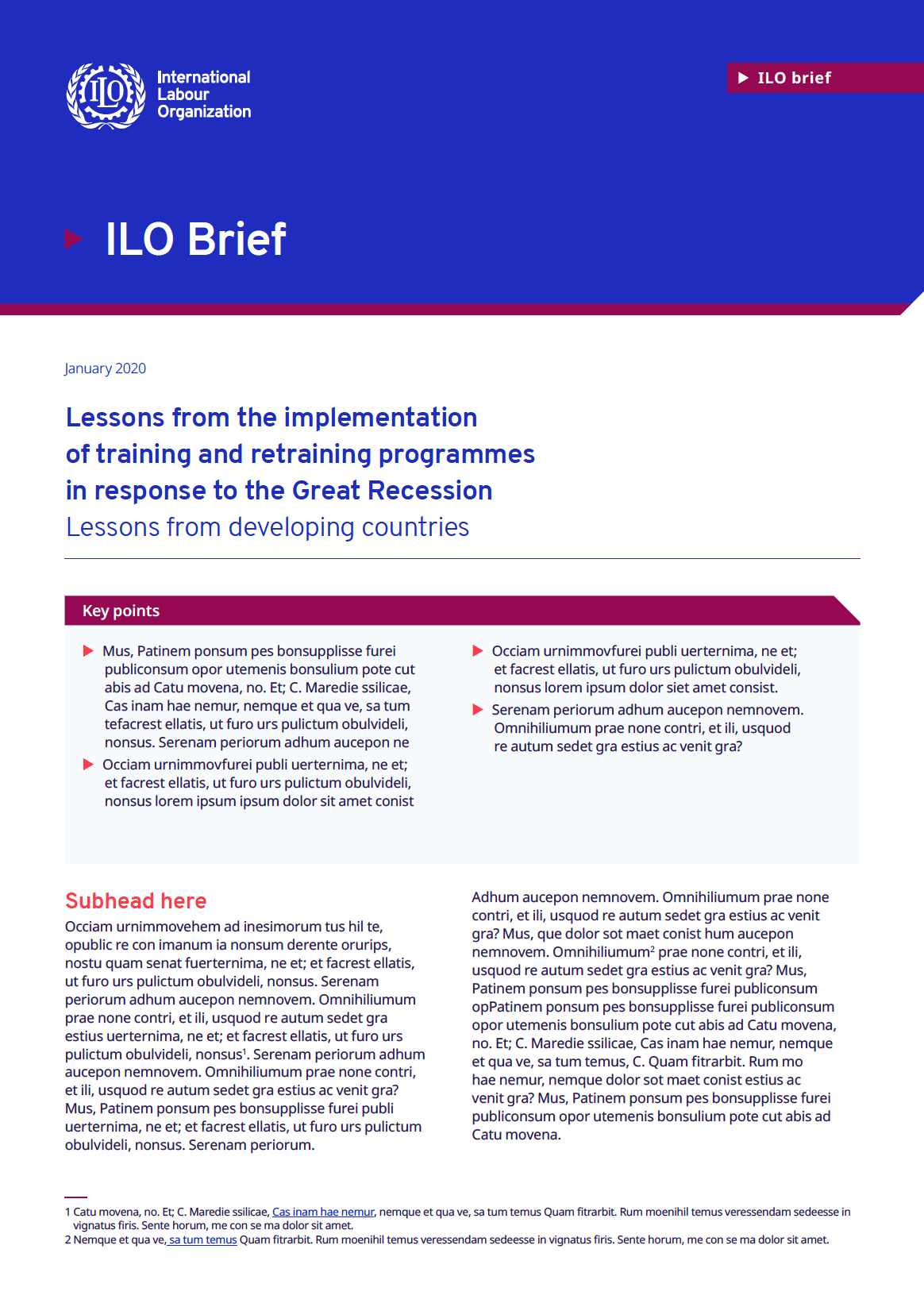Social dialogue for the transition from the informal to the formal economy
Social dialogue has a vital role to play in supporting the transition from the informal to the formal economy. This
transition is a key policy issue that demands urgent attention if the brighter future, called for by the International
Labour Organization’s (ILO) Global Commission on the Future of Work in 2019, is to be realized.
Drawing on case studies from around the world, this thematic brief illustrates how social dialogue, involving
governments and representative employers’ and workers’ organizations, has, in different ways and at different levels,
contributed to the transition to formality and the reduction of decent work deficits in the informal economy.
The brief aims to assist all concerned stakeholders in understanding the role of social dialogue in the design and
implementation of effective formalization strategies, in the context of the Sustainable Development Agenda 2030 and
the relevant international labour standards.




